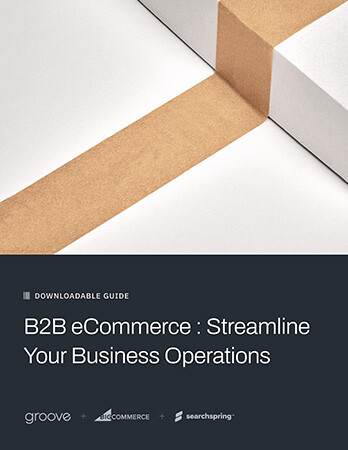Introduction: Why a Strong B2B eCommerce Strategy is Essential
The digital marketplace has made it easier for businesses to engage with leads and customers regardless of geographical location. However, it has also opened up the market, so businesses have to compete with other companies across the country and around the world for the attention of customers.
In this competitive atmosphere, having a well-planned B2B eCommerce strategy is key to creating campaigns that will keep users interested and engaged. For those who have not worked on digital engagement, working with a B2B eCommerce agency can provide the support you need to make these methods work for you and your B2B sales strategy.
Key Elements of a Successful B2B eCommerce Business Strategy
Building a successful B2B eCommerce strategy calls for a strong foundation. Using the proper tools and information throughout the process can get your campaigns started on the right foot. Here are three key elements that you’ll want to make sure you have in place:
- Keen understanding of the target audience: Know who you want to target and what motivates them. A thorough profile will help you understand their budget and what convinces them to make purchases.
- Offer personalized experiences: Buyers do not want to feel like another number or anonymous visitor. Instead, digital experiences should offer personalized interactions that help shoppers feel valued by the business.
- Seamless technology integration: To provide the ultimate personalization and a seamless experience for users, businesses need to integrate their technology. Regardless of the channel, customers should benefit from consistent, personalized experiences that keep them interested in your company. Quality integration simplifies this process.
Building a Scalable B2B eCommerce Platform Strategy
The right B2B eCommerce platform strategy will be critical to organizing and optimizing your campaigns. However, with numerous options on the market, it can feel challenging to find the best choice for your B2B digital strategy.

As a B2B business, your chief focus lies in finding a platform that can grow with your business and adapt as the market changes. Trends continue to emerge and fade as technology improves and customer expectations shift. Therefore, you want a platform that can support you through these changes so that your business continues to grow.
Optimizing Customer Experience in B2B eCommerce
A shift toward B2B eCommerce promotes a streamlined digital customer experience. When you set up a fully B2B digital strategy and eCommerce experience for your buyers, you can create a customer journey that will take them through the entire process. Some B2B sales strategy elements that you can build with the proper platforms include:
- Self-service portals, which allow customers to access and manage their own orders.
- Bulk ordering options, which accommodate different order sizes. Bulk ordering can simplify purchases, enabling customers to take control of the process instead of reaching out to sales representatives.
- Customized pricing, which recognizes users' unique needs. Buyers will feel prioritized, giving them a quality customer experience.
Technology and Automation in B2B eCommerce Strategy
As you build your B2B eCommerce business strategy, incorporating technology and automation should also be high on your to-do list. Automation tools and integrated technology can increase efficiency and make it easier to contact customers at precisely the right time. For example, if a customer visits a critical page, such as a price list, it might trigger an email message inviting them to try a demo. You can also set up an email workflow that draws leads in and determines how they respond to different types of content.
Artificial intelligence also holds tremendous power for personalization. By tracking leads and their engagement with your brand, this technology can build a more accurate picture of them. It could help you match the content and products most likely to interest them, so you'll have material that successfully encourages a lead to return for future purchases.
Technology trends have also opened the door to tools like automated chatbots. This software can be programmed to quickly answer customer questions on various topics at any hour. It frees up some of the customer service representatives and helps users find information faster, improving their overall experience.
Conclusion: Developing a B2B eCommerce Business Strategy for Long-Term Success
Building an effective B2B eCommerce strategy can empower businesses to grow and achieve new goals. With customers turning to online platforms and mobile devices to engage with various brands, the organizations that have built a strong, interactive digital presence will perform best.
The key to success with these strategies is scalability and adaptability. Technology and trends shift so quickly that businesses need platforms that adjust just as quickly. Fortunately, working with an experienced B2B eCommerce agency can help companies like yours stay at the forefront of your industry. Start with an audit to see where your business has room for improvement. Contact Groove Commerce now to learn how we can help you build an effective B2B eCommerce strategy for lasting success.

eBook
B2B eCommerce: The Complete Guide to Accelerate Growth
Explore tags:
About the author
Subscribe to the Groove Newsletter
Get the latest updates and insights straight to your inbox






